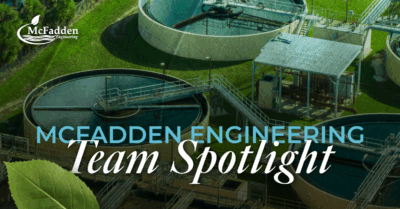Water Conservation 101: Protecting a Critical Natural Resource
August 20, 2025

Water Conservation 101: Protecting a Critical Natural Resource
Clean water is essential to life on earth. It is key to individual health, supports agricultural needs and serves an important role in the environment, among other qualities. National Water Quality Month, recognized in the United States every August, offers the perfect opportunity to commit to conserving water both at home and on the job.
What are the Current Threats to Our Water Supply?
The population of earth has grown rapidly in the last century. More people lead to greater demand for clean water for drinking, bathing, washing dishes and clothing and other daily tasks. The influx in population also increases the need for crops and livestock, which require much water during the growing and production processes.
Water usage continues to climb, and simultaneous issues have emerged that threaten this precious resource that is already being stretched thin in some areas of the country and around the world. Sources of freshwater contamination include:
- Dumping effluent (liquid waste or sewage) from industrial sites
- Agricultural runoff
- Waste leakage that is left untreated
- Various chemicals and other contaminants people use at home
The U.S. Environmental Protection Agency (EPA), The Safe Drinking Water Act (SDWA), Clean Water Act (CWA) and water utility companies lead the way when it comes to water conservation and keeping our freshwater safe, but individuals and companies have a role to play, too.
 Industry Plays a Major Role in Protecting Water Resources
Industry Plays a Major Role in Protecting Water Resources
While it is important for individuals to keep water conservation top of mind when going about their daily activities, businesses and governments also share in the responsibility.
Development, construction, manufacturing, processing and other activities across a range of industrial sectors can leave a lasting footprint on communities and their environments if precautions are not taken to protect and conserve water. When industrial facilities do not take the proper steps to ensure environmental compliance, waste, chemicals and other contaminants can unknowingly migrate from the facility into surrounding land, groundwater and other water sources. This can lead to costly fines, expensive cleanup projects, reputation damage and, in some cases, harmful health effects to those in proximity to the leak.
McFadden Engineering specializes in supporting businesses in achieving environmental compliance and solving water and wastewater challenges, including:
- Site assessments
- Remediation
- Water and wastewater treatment
- Water quality and hydraulic monitoring
- Environmental compliance
How Individuals Play a Part in Water Conservation
It is critical for individuals and families to be mindful of the impact their activities can have on the environment, particularly our freshwater sources. While it is important to conserve water by using less of it whenever possible, it is just as – if not more – important to be conscious of accidentally allowing contaminants to enter water sources. Below are suggestions for water conservation at home:
- Turn the water off when not in use – be particularly aware when doing dishes, brushing teeth and watering plants.
- Fix leaky faucets and pipes promptly to avoid wasting water and eventual water damage.
- Pick up after pets: do not leave waste on the ground, as it can be washed away into water sources.
- Wash the car at the car wash: car washes are required to collect and treat dirty water and cleaning agents, so they do not enter the environment.
- Avoid fertilizing your yard, especially phosphorous-based fertilizer.
- Dispose of leftover paint, oil, antifreeze and similar products properly – your city or county should have instructions on disposal protocol. These products should not be put out with the regular garbage for disposal.
- Do not flush medications down the toilet: traces of contaminants can eventually be found in water sources.
- Use a rain barrel to collect rainwater for simple water reuse at home.
- Volunteer to help clean up a creek, beach or roadside near your home.
While National Water Quality Month offers a needed reminder of the importance of protecting water as a natural resource, both individuals and industry must build water conservation into their routines every day of the year.
